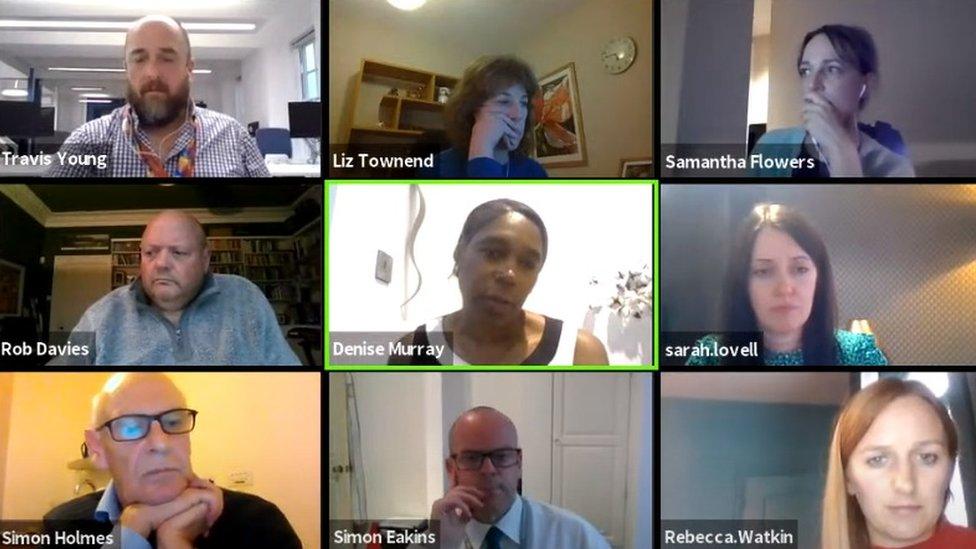Bristol council calls for help with £24m education deficit
- Published

The Department for Education has said it expects to see changes by the end of the 2022 and 2023 financial year
A council has asked the government for financial help after it found it had a growing multi-million pound deficit in its schools budget.
Bristol City Council said it expects it would have spent £24m more than it had received by the end of March next year.
It revealed the cause was an overspend in special educational needs.
Councillors have said further help would hinge on whether they can show they can "stabilise" spending.
The forecast deficit also includes £10m accrued in 2020 and 2021.
The authority was given more than £403m to run schools in 2021 and 2022.

Members of Bristol Schools Forum listen as finance director Denise Murray sets out the scale of the council's education budget deficit
Finance director Denise Murray said the financial position was "worrying" and the deficit could see "further increases".
"We've sort of set out our stall," she said.
The council is working on a plan to "turn the [spending] curve", which the government has said it expects to see by the end of the 2022 and 2023 financial year.
But the plan relies on its Education Transformation Programme, launched in 2020 to improve the way Bristol schools educate children with special educational needs (SEND).
"We need to be clearer on the milestones by when we think we will start to see some of the improvements in the financial position," she added.
She noted the three-year, £6.1m scheme had made progress in 2020.
The Local Democracy Reporting Service, external said the scheme included the creation of 190 extra special school places by September 2022, with 80 added so far, and work to improve the statutory process around education, health and care plans for SEND children.
'Families still struggling'
But Bristol headteacher Simon Holmes said there still seems to be a "disconnect" between the lived experience for families and the "progress".
"Many families are still really struggling to get heard," he said.
"We have families going to solicitors now because they can't get what they're needing."
Ms Murray agreed with Mr Holmes that it was vital for the council to listen to families and incorporate any necessary changes.
"Whilst we've agreed a certain set of actions, there should be a feedback loop, and if the feedback indicates we need to change the actions in order to have an appropriate level of impact on outcome then that needs to be part of that process," she added.

Follow BBC West on Facebook, external, Twitter, external and Instagram, external. Send your story ideas to: bristol@bbc.co.uk , external
Related topics
- Published8 September 2021

- Published2 September 2021

- Published2 April 2021
